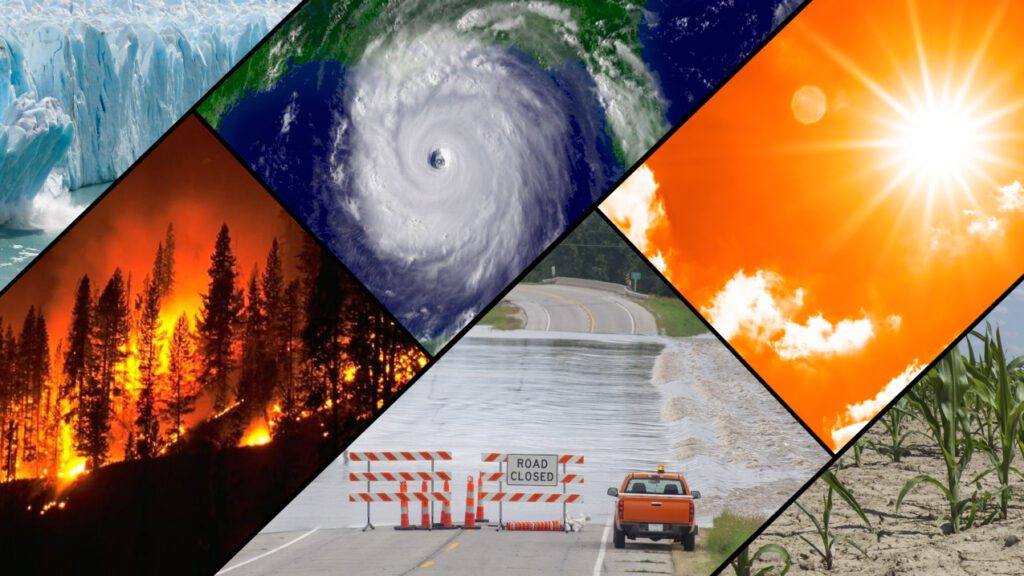Glossary
Definitions for some of the terms used in this resource collection.
Anthropogenic
Human-caused.1
Climate resilience
The ability to prepare and plan for, absorb, recover from, and more successfully adapt to adverse events related to climate change.2
Ecosystem
A system made up of the biological, physical, and chemical components that interact with one another in a given area. 3
Emissions
In the context of climate change, refers to the release of greenhouse gasses by human activities.
Geographic range
The geographic area over which a species lives.
Industrial Revolution
The Industrial Revolution began in the mid-1700s and marks the time during which production of goods transitioned from being mostly handmade to produced with the aid of machines in factories.6
Heatstroke
A heat-related illness characterized by a high body temperature, headache, dizziness, nausea, confusion, a fast and strong pulse, and even passing out.7
Infrastructure
The structures, facilities, and utilities that we need to maintain normalcy in daily life. This includes things related to transportation, like roads, bridges, and ports, and things related to utilities like electricity and drinking water.8, 9
Risk communicators
Experts or officials who share information, advice and opinions with people who face a hazard or threat to their wellbeing so that they can make informed decisions and take protective and preventive measures.10 offsite link
Storm surge
The abnormal rise in seawater level during a storm. It is measured as the height of the water above the normal predicted astronomical tide. The surge is caused primarily by a storm’s winds pushing water onshore.11
Thermal expansion
Water expands as it warms, this is a major causes of global sea level rise.12
Transpire
Water released into the atmosphere from plant surfaces.13
Waterborne disease
Diseases spread through water.

